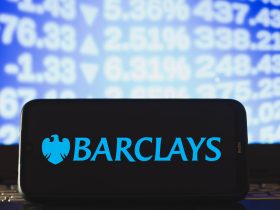Commercial real estate investment is known to provide some of the highest income streams. It is an important asset class to consider as a way of spreading or diversifying risk in an investment portfolio. One of the major advantages of commercial real estate investing is that the sector isn’t highly correlated to other asset classes such as cash, fixed income and equities which means real estate values are independent of the ups and downs seen in other asset classes.
Real estate values are typically unaffected by fluctuations in the stock markets. Unlike stocks and bonds traded frequently on a secondary market, real estate is a scarce resource and holds intrinsic value as hard asset. Stocks are often purchased for their selling potential rather than as a source of income, whereas real estate provides an income while the investor holds the investment as well as a profit on selling.
Although, commercial real estate investing has its own set of variables which play a role towards the fluctuations seen in real estate.
What to consider before commercial real estate investing?
The role of location and type of commercial real estate in terms returns on investment cannot be overstated as the same level of investment may be a success or not, based on the location and commercial real estate type.
Investment level and ROI
Initial levels of commercial real estate investing may be similar to that for residential real estate but may involve much larger scales of investment than that in residential real estate. Therefore, it is necessary to consider one’s affordability constraints and the type of commercial real estate according to the level of investment. Selecting the type of investment is important as the same level of investment into different commercial property types even in one location may yield varying returns on investment. For example, in term of property types, a shopping centre or a shop and a much bigger warehouse may involve same levels of investment which may yield highly varying levels of profits. Whereas, in terms of location, an office space in a small town may cost much less than that in a large city.
Longer lease structure
Commercial real estate investing is also a viable option due to the lease durations for commercial property in the UK. As the lease durations for commercial property is often much longer than those in the residential sector, there is more stability in terms of rental income. However, investors should take into account the potential void periods during the lease duration and have a backup or contingency plan to be deployed in case of void periods.
Long term and short term commercial real estate investing
Investors need to figure out whether a long term or short term investment will be viable for them. While having short term goals and objectives should be inherent in the investment plan, too much focus or emphasis on the immediate may create instability in the long term.
Factors that influence commercial real estate investing
As commercial real estate is a high-risk option which may involve high levels of investment, investors should figure in every potential factor that may arise anytime during the investment duration. Though, the unknown will always be there, investors should hedge the uncertainty with a contingency plan. For example, though some may not consider it an important factor when making a decision on investment, weather is an important variable and seasonal fluctuations may have a significant impact on the return on investment. Similarly, investors should be aware of proposed development plans in the area they are planning to invest in, and how they are likely to affect the investment.
Duration of commercial real estate investing
Investors should be aware of their objectives and have a clear goal regarding their investment such as the timescale of the investment, whether the investment is for immediate returns or it is about waiting for the right opportunity. They should know what exactly their goals are, where to invest, in what property type and how to finance the investment. This requires due diligence on the market in order to know the trends in the market and the type of commercial property that is likely to generate desired returns on investment. While an experienced investor knows what to do and should be able to spot an opportunity and invest right away, it may be some time before a beginner is prepared to invest. For a beginner, seeking the advice of real estate professionals may prove to be valuable which may maximise the return on investment.
Type of commercial property
Investors should consider the type of commercial property before investing. Whether it should be a retail environment in a popular commuter town with excellent transport links, a particular area of business which the investor is familiar with, or an industrial unit within an industrial park which may be more affordable due to its location away from the city. In case an investor is willing to wait for the right opportunity, then keeping an eye on the regeneration projects may be a good idea. Waiting for the opportune time means an investor is likely to invest at the appropriate time or when it involves minimum investment in a potentially profitable investment.
Lease vs. purchase
Investors should decide whether to lease a commercial real estate or purchase it. This depends on the investor’s situation, knowledge and experience. However, both the options have their advantages and disadvantages. Therefore, an investor should weigh the pros and cons of both the options which may indicate the appropriate option. However, an experienced professional advice may be useful in understanding the lease, clauses and other details to help determine the right option.
Ways to invest in commercial real estate
There are a number of ways to invest in commercial real estate and it is essential to consider all routes before investing. These include:
Direct investment: This involves the purchase of the physical property. Direct investment in physical property is not usually a viable option for small private investors due to the high values associated with this property type.
Indirect investment: It involves buying shares in a company that invests in property. While investors can gain exposure to a range of commercial property investment opportunities through indirect investment, it is considered by some to be less risky as well as low in cost.







Leave a Reply